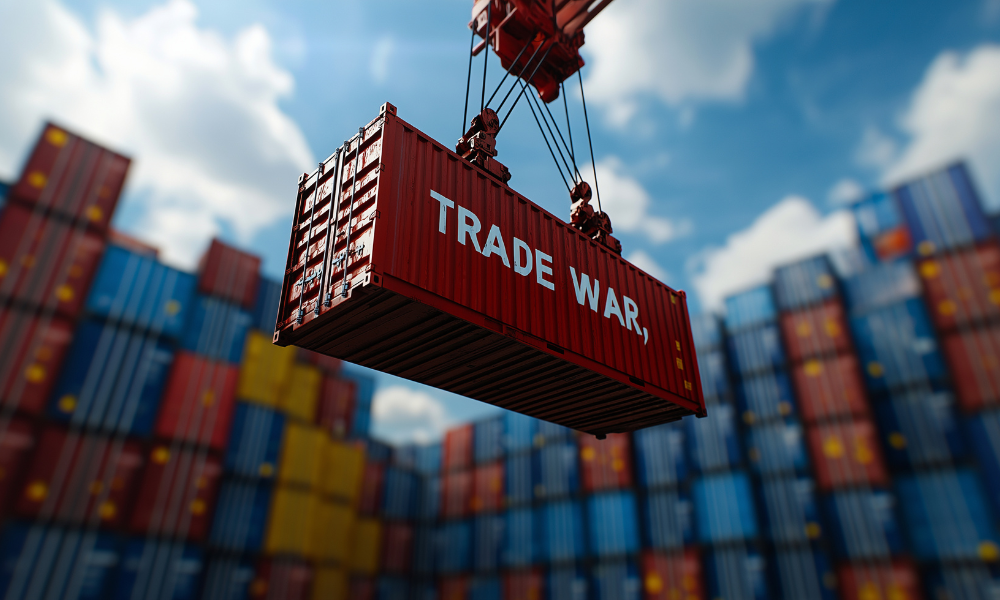

by John Harney
Former Treasury Secretary Janet Yellen said the rationale for President Donald Trump’s tariff policies was “unclear and not at all sensible,” adding she believes China would like to “de-escalate this conflict.”
Yellen, who was also chair of the Federal Reserve during the Obama and first Trump administrations, said the recent turmoil in the bond markets and the weakening of the dollar reflected “a loss of confidence,” though things haven’t yet gotten to the point where the Fed would need to intervene.
“Steps toward removing the tariffs, lowering them, are positive, but we’re in a world of tremendous uncertainty,” Yellen said Monday in an interview on Bloomberg Television’s Balance of Power.
She expressed bafflement regarding some of the targets of the tariff campaign, and that tariffs Trump had promised would be reciprocal were instead calculated based on bilateral trade deficits — including sometimes penalizing economies which have trade deficits exacerbated in recent years as American companies diversified supply chains away from China.
“I’m confused about what the Trump administration will be looking for with Vietnam for example,” she said. “We actively encouraged Vietnam to begin to produce goods that we were dependent on China for. For national security purposes we wanted diversification of supply chains.”
Yellen said she thought China would prefer to remove its recent trade barriers if the US did so as well. Tariff levels with China are almost prohibitive to trade, she said, warning that if kept in place they would lead to an effective decoupling of the world’s two largest economies.
“I think that the tariffs we’ve placed on China are going to impose very significant burdens on American households. Of course, things are changing by the day,” Yellen said.
Even with all the uncertainties faced by investors, governments and consumers, Yellen said the US economy was still strong, and she didn’t see a case for intervention by the central bank as of now.
“If real financial stability concerns were to arise, I believe the Fed would think about using its liquidity facilities as it did at the beginning of the pandemic,” Yellen said. “But we’re not at that point yet.”
Copyright Bloomberg News

The new regional leader brings nearly 25 years of experience as the firm seeks to tap a complex and evolving market.

The latest updates to its recordkeeping platform, including a solution originally developed for one large 20,000-advisor client, take aim at the small to medium-sized business space.

David Lau, founder and CEO of DPL Financial Partners, explains how the RIA boom and product innovation has fueled a slow-burn growth story in annuities.

Crypto investor argues the federal agency's probe, upheld by a federal appeals court, would "strip millions of Americans of meaningful privacy protections."

Meanwhile in Chicago, the wirehouse also lost another $454 million team as a group of defectors moved to Wells Fargo.
Orion's Tom Wilson on delivering coordinated, high-touch service in a world where returns alone no longer set you apart.
Barely a decade old, registered index-linked annuities have quickly surged in popularity, thanks to their unique blend of protection and growth potential—an appealing option for investors looking to chart a steadier course through today's choppy market waters, says Myles Lambert, Brighthouse Financial.
